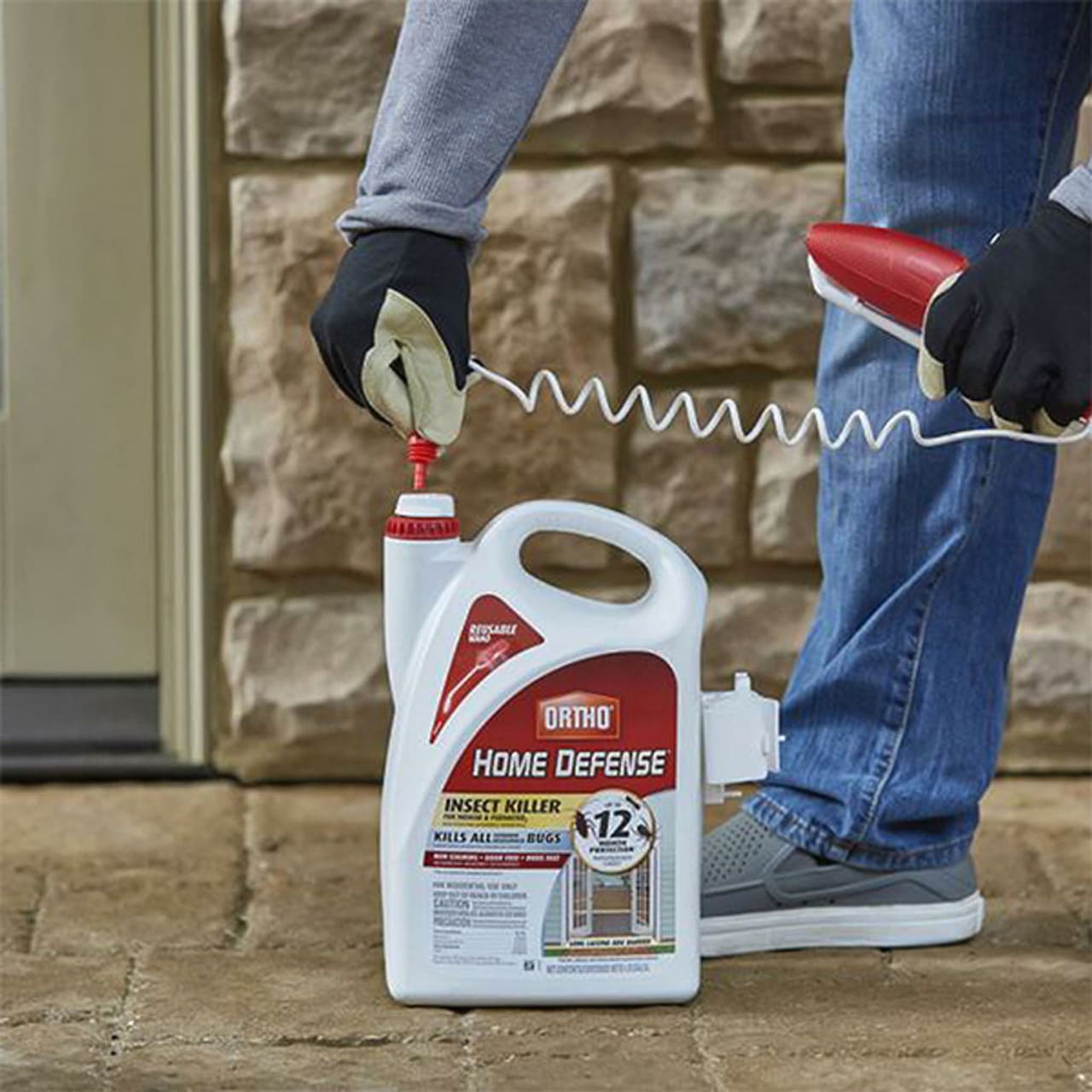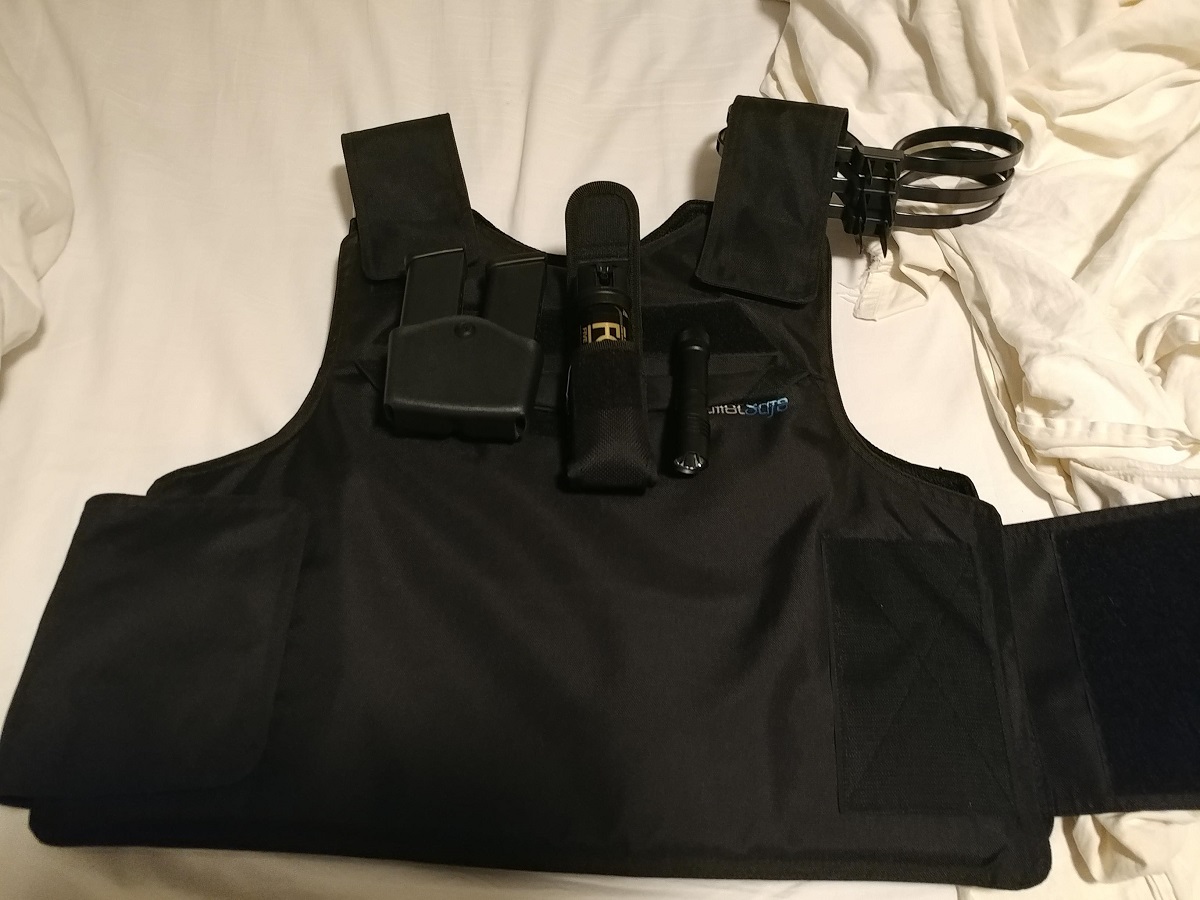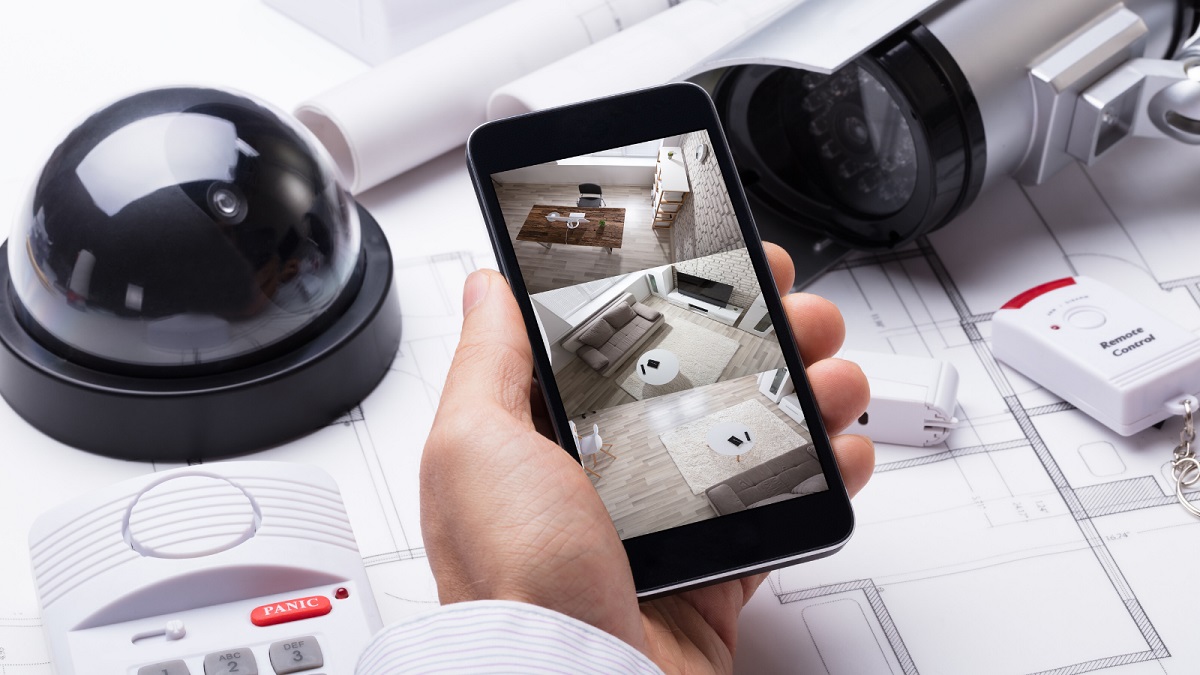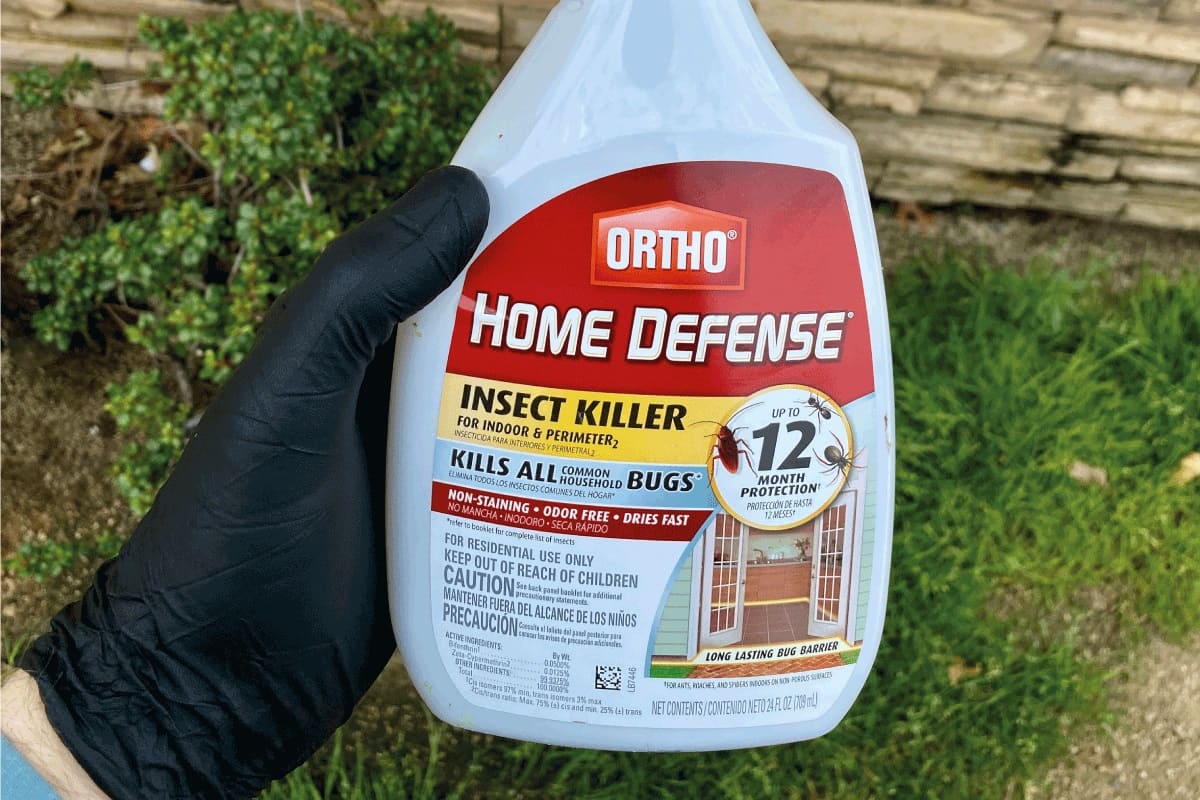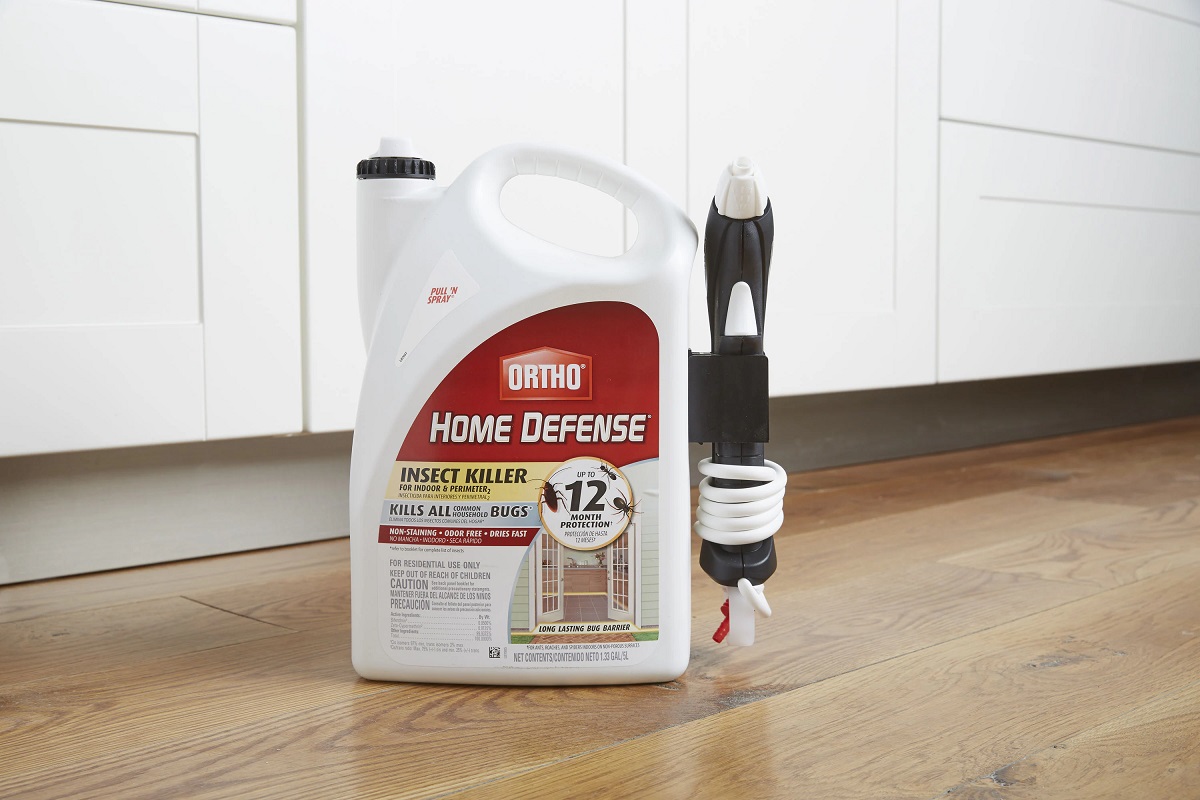Home>Home Security and Surveillance>What To Do After A Home Defense Situation


Home Security and Surveillance
What To Do After A Home Defense Situation
Modified: March 6, 2024
Discover essential steps to take after a home defense situation for improved safety and peace of mind. Enhance your home security and surveillance with expert advice and recommendations.
(Many of the links in this article redirect to a specific reviewed product. Your purchase of these products through affiliate links helps to generate commission for Storables.com, at no extra cost. Learn more)
Introduction
Welcome to the world of home security and surveillance, where peace of mind meets technology. In today’s unpredictable world, it has become increasingly important to protect our homes and loved ones from potential threats. Whether it’s burglary, vandalism, or even personal safety concerns, having a robust home defense strategy is essential.
In this article, we will explore what to do after a home defense situation. While we hope you never find yourself in such a situation, it is crucial to be prepared and know the appropriate steps to take in the aftermath. From assessing the situation to contacting the authorities and ensuring your safety, we will guide you through the necessary actions you need to consider.
But remember, every situation is unique, and it’s important to use your judgment and prioritize your safety above all else. Let’s dive in and discover the essential steps to take after a home defense incident.
Key Takeaways:
- Prioritize safety and well-being after a home defense situation by assessing the situation, ensuring safety, and contacting the authorities promptly. Seek legal assistance and counseling for emotional healing and adjust personal security measures for future protection.
- Document the incident, address property damage, and evaluate home security measures to strengthen safety. Seek legal assistance and counseling for emotional healing. Stay proactive and prioritize well-being for peace of mind.
Read more: What To Do In Home Defense: Kill Or Wound?
Assessing the Situation
Immediately after a home defense situation, it is crucial to assess the situation calmly and quickly. Take a moment to gather your thoughts and evaluate the extent of the incident. Here are some important aspects to consider:
- Safety: Ensure that you and your loved ones are out of immediate danger. If you or anyone else has sustained injuries, prioritize seeking medical attention and calling emergency services.
- Number of Intruders: Assess if there was more than one intruder involved. This will help law enforcement authorities respond appropriately and determine the level of threat posed.
- Level of Damage: Survey the damage caused to your property, both exterior and interior. Take note of any broken windows, damaged doors, or potential entry points that were compromised during the incident.
- Stolen Items: Determine if any valuables or important possessions were taken. Make a mental note of these items, as it will be essential for insurance or legal purposes.
- Evidence: Look for any potential evidence that could aid law enforcement in their investigation. This could include security camera footage, fingerprints, or anything else that may have been left behind by the intruders.
It’s important to avoid tampering with the scene as much as possible. Preservation of evidence is crucial for any subsequent investigations. Stay focused, observant, and take note of any details that may be important later on.
Once you have evaluated the situation and assessed the immediate impact, it’s time to prioritize your safety and take the necessary steps to ensure your well-being.
Ensuring Your Safety
After a home defense situation, your safety and the safety of your loved ones should be your top priority. Here are some steps to take to ensure your well-being:
- Find a Safe Location: If you are still inside your home, move to a secure room or area where you can lock the door and find cover. Stay away from windows or other potential entry points.
- Account for Everyone: Take a headcount of all family members or individuals present in the house to ensure everyone is accounted for and unharmed.
- Communicate Silently: In situations where you believe the intruders are still in the vicinity, communicate silently with your family members. Use hand signals or whisper to avoid alerting the intruders to your presence.
- Stay on the Line: If you have already called emergency services, stay on the line until they arrive. Provide them with any updates or changes in the situation.
- Keep Emergency Supplies Handy: Have a well-stocked emergency kit containing essentials such as water, non-perishable food items, a first aid kit, flashlight, and extra batteries. In case of an extended lockdown situation, having these supplies can be invaluable.
- Stay Informed: Keep a radio or any communication device handy to stay updated on any developments or instructions from law enforcement authorities.
- Follow Professional Advice: Listen to the instructions provided by law enforcement or emergency personnel carefully. They are trained to handle such situations and will guide you on the appropriate steps to take for your safety.
While it is natural to feel overwhelmed or anxious in such situations, maintaining a calm and focused mindset is crucial. By ensuring your safety and the safety of your loved ones, you are better equipped to handle the aftermath of a home defense situation.
Contacting the Authorities
When faced with a home defense situation, contacting the authorities is a crucial step in ensuring your safety and initiating appropriate legal actions. Here’s what you should do:
- Emergency Services: If you haven’t already done so during the incident, immediately call emergency services, such as the police, and provide them with all pertinent information. Stay on the line until they arrive and follow their instructions.
- Give a Detailed Account: When speaking to the authorities, provide a detailed account of what happened. Be as accurate as possible about the number of intruders, description of the incident, and any injuries sustained.
- Cooperate Fully: Law enforcement officials may ask you to provide further information or assistance in their investigation. Cooperate fully and provide any documentation or evidence you have collected.
- Ask for a Copy of the Report: Request a copy of the police report filed for your records. This report will be important for insurance claims and any legal proceedings that may follow.
- Follow-up Communication: If you have any updates or additional information related to the incident, inform the authorities promptly. Maintaining open lines of communication is essential for a thorough investigation.
Remember to remain calm and composed while communicating with the authorities. Provide them with the necessary information to the best of your ability and let them handle the situation professionally.
Keep in mind that contacting the authorities is not only important for immediate response but also for filing necessary reports, which can aid in insurance claims or potential legal actions.
Documenting the Incident
After a home defense situation, it is crucial to document the incident thoroughly. Proper documentation will serve as valuable evidence for insurance claims, legal proceedings, and any investigations that may take place. Here’s how to effectively document the incident:
- Photographs and Videos: Take detailed photographs and videos of the scene, including any damage to your property and any items that were stolen or vandalized. Ensure that the images are clear and capture all relevant details.
- Written Description: Write a detailed description of what happened during the incident. Include specific dates, times, and a chronological order of events. Be as objective and accurate as possible in your account.
- Itemize Stolen or Damaged Property: Make a list of any valuable possessions that were stolen or damaged. Include their descriptions, estimated values, and any identifying marks or serial numbers.
- Witness Statements: If there were any witnesses present during the incident, collect their contact information and ask them to provide a statement. These statements can support your version of events and provide additional corroborative evidence.
- Police Report: Keep a copy of the police report filed after contacting the authorities. This report will contain essential information and details regarding the incident.
- Medical Records: If you or any family members sustained injuries during the incident, obtain copies of medical records and reports. These will serve as evidence of any harm caused during the incident.
- Communication Records: Keep records of any communication regarding the incident, such as emails, text messages, or phone call logs. These records can be important for any legal or insurance-related correspondence.
Remember to store all these documents in a safe and secure place. Having thorough documentation will strengthen your case and make it easier to navigate insurance claims or potential legal actions that may follow the home defense situation.
Seeking legal assistance is also an important step to consider after documenting the incident, as it will help you understand your rights and provide guidance throughout the legal process.
Seeking Legal Assistance
After experiencing a home defense situation, it is advisable to seek legal assistance. Engaging with a lawyer who specializes in home security and surveillance can help you understand your rights, navigate the legal process, and ensure that justice is served. Here are some reasons why seeking legal assistance is crucial:
- Legal Expertise: A lawyer with expertise in home security and surveillance laws can provide you with accurate information about your rights and the legal actions you can take. They can guide you through the entire process and help you make informed decisions.
- Insurance Claims: If you have homeowner’s insurance, a lawyer can assist you in filing an insurance claim for the damages and losses incurred during the home defense situation. They can help you gather the necessary documentation and negotiate with the insurance company on your behalf.
- Legal Proceedings: If the home defense situation involves potential criminal charges or if you decide to pursue a civil case against the perpetrators, a lawyer can represent you in court. They can gather evidence, build a strong case, and advocate for your rights and interests.
- Understanding Legal Options: A lawyer can assess your situation and advise you on the best legal options available to you. They can explain the potential outcomes, risks, and benefits of each option, allowing you to make an informed decision about how to proceed.
- Negotiations: In some cases, a lawyer may be able to negotiate with the other party or their legal representation to reach a settlement or resolution. They have the experience and negotiation skills necessary to ensure that your interests are protected.
When seeking legal assistance, make sure to choose a lawyer who specializes in home security and surveillance. They will have the specific knowledge and expertise required to effectively handle your case.
Remember to provide your lawyer with all the documentation and information you have gathered, as it will help them build a strong case on your behalf.
By seeking legal assistance, you can navigate the complex legal system with confidence and increase the chances of achieving a favorable outcome after a home defense situation.
After a home defense situation, call 911 immediately and report the incident. Cooperate with law enforcement and provide them with any necessary information. It’s important to seek counseling or support to process the experience and ensure your mental well-being.
Seeking Counseling or Support
Experiencing a home defense situation can be incredibly traumatic and emotionally draining. It is essential to prioritize your mental and emotional well-being during this challenging time. Seeking counseling or support can provide you with the necessary tools and guidance to process your emotions and regain a sense of security. Here are some reasons why seeking counseling or support is crucial:
- Emotional Healing: A trained counselor or therapist can help you navigate the emotional aftermath of a home defense situation. They can provide a safe space for you to express your feelings, process any trauma or anxiety, and develop coping mechanisms to deal with the impact of the incident.
- Post-Traumatic Stress Disorder (PTSD) Management: Home defense situations can lead to the development of post-traumatic stress disorder (PTSD) symptoms, such as flashbacks, nightmares, or hypervigilance. A mental health professional can assist in managing these symptoms and work towards your recovery.
- Family Support: Seeking counseling or support as a family unit can help everyone involved in the home defense situation cope and heal together. Family therapy can strengthen communication, rebuild trust, and aid in the process of moving forward as a cohesive unit.
- Community Support Groups: Connecting with others who have experienced similar situations can provide a sense of validation and understanding. Consider joining support groups or seeking out community resources specific to home security and surveillance to share experiences, learn from others, and find solace.
- Self-Care and Coping Strategies: Counseling can help you develop healthy coping strategies and self-care routines to minimize the long-term impact of the incident. Learning techniques to manage stress, anxiety, and fear can empower you to regain control over your life and well-being.
Remember, seeking counseling or support is not a sign of weakness, but rather a proactive step towards healing and building resilience. Reach out to your healthcare provider or local community resources for recommendations on reputable counselors or support groups specializing in trauma and home security-related issues.
By prioritizing your mental health and seeking the support you need, you can navigate the emotional aftermath of a home defense situation and move towards a path of healing and recovery.
Evaluating Your Home Security Measures
After experiencing a home defense situation, it’s crucial to evaluate your home security measures to prevent future incidents and enhance your overall safety. Here’s how you can assess and improve your home security:
- Assess Vulnerable Points: Identify potential entry points such as doors, windows, and garage entrances. Examine their current security features and determine if they need reinforcement.
- Upgrade Locks and Door Security: Consider installing deadbolt locks on exterior doors and reinforcing them with door jammers or security plates. Ensure windows are equipped with sturdy locks or security film.
- Install a Security System: Evaluate the need for a comprehensive security system, including surveillance cameras, alarms, motion sensors, and access control systems. Choose a system that suits your specific needs and budget.
- Outdoor Lighting: Adequate lighting deters potential intruders. Install motion-sensor lights in strategic areas around your property, including entrances, pathways, and the backyard.
- Secure Valuables: Consider installing a safe for important documents, jewelry, and other valuable possessions. Hide valuable items out of plain sight to minimize their visibility to potential thieves.
- Neighborhood Watch: Connect with your neighbors and establish a neighborhood watch program. Look out for each other’s properties and report any suspicious activity to local authorities.
- Secure Wi-Fi Network: Protect your home network by enabling encryption, changing default passwords, and regularly updating your router’s firmware. This prevents unauthorized access to your personal information.
- Secure Perimeter: Consider adding fencing, gates, or hedges to enhance the physical barriers around your property. These measures can act as deterrents and make unauthorized entry more difficult.
- Regular Maintenance: Maintain the upkeep of your home security systems, including testing alarms, replacing batteries in surveillance cameras, and keeping shrubs and trees trimmed to prevent hiding spots.
Consult with a professional security expert to evaluate your home security needs and make the necessary upgrades. They can provide valuable insights and recommend specific measures that align with your property’s layout and your personal preferences.
Remember, enhancing home security is an ongoing process. Regularly reassess and update your security measures to stay ahead of potential risks and protect your home and loved ones.
Addressing Any Property Damage
After a home defense situation, it is essential to address any property damage as quickly as possible. Not only does repairing the damage restore the security and functionality of your home, but it also helps you regain a sense of normalcy. Here are the steps to address property damage:
- Safety First: Before assessing the damage, ensure that it is safe to enter or remain in your home. If there are any structural concerns or compromised utilities, such as gas leaks or electrical hazards, contact the appropriate professionals to address the issue.
- Document the Damage: Take detailed photographs and videos of the property damage. These visuals will serve as evidence for insurance claims and any legal proceedings that may arise.
- Temporary Repairs: If necessary, make temporary repairs to secure your home and prevent further damage. This could include boarding up broken windows, covering holes, or securing doors until permanent repairs can be made.
- Contact your Insurance Provider: Notify your homeowner’s insurance company as soon as possible to report the damage and start the claims process. Provide them with all the necessary documentation, including photographs, videos, and any other evidence of the incident.
- Schedule Repairs: Obtain quotes from reputable contractors or restoration professionals to repair the damage. Get multiple estimates if needed and choose the most reliable and cost-effective option for your specific needs.
- Communicate with Restoration Professionals: Stay in regular communication with the restoration professionals to ensure that repairs are completed in a timely manner. Address any concerns or questions you may have during the process.
- Keep Records: Maintain a record of all communication, quotes, invoices, and receipts related to the property damage and restoration efforts. This documentation will be crucial for insurance purposes and any potential legal actions.
- Ensure Quality Repair Work: Once the repairs are complete, thoroughly inspect the work to ensure that the damage has been addressed satisfactorily. If you have any concerns, communicate them with the restoration professionals or your insurance provider.
Remember, the process of addressing property damage can be daunting, but with proper documentation, prompt action, and open communication, you can restore your home to its pre-incident condition.
By following these steps, you are taking important actions to regain a sense of security and normalcy in your home.
Read more: What To Use For Home Defense
Adjusting Your Personal Security Measures
After experiencing a home defense situation, it’s important to adjust your personal security measures to enhance your safety and prevent future incidents. Taking proactive steps to protect yourself and your home can provide peace of mind. Here are some ways to adjust your personal security measures:
- Heightened Awareness: Develop a heightened sense of awareness regarding your surroundings. Be observant of any unusual activity in your neighborhood and trust your instincts if something feels off.
- Personal Safety Training: Consider enrolling in personal safety training courses or self-defense classes. Learning practical techniques and strategies can help you feel more confident and secure in various situations.
- Implement Daily Security Habits: Develop habits that promote security, such as locking all doors and windows before leaving your home or when retiring for the night. Set reminders or utilize smart home technology to assist with these tasks.
- Establish Emergency Plans: Create and practice emergency plans with your family members in case of future incidents. Designate safe areas within your home and establish communication methods during emergencies.
- Utilize Security Technology: Take advantage of modern security technology. Install a reliable alarm system, surveillance cameras, and smart locks to enhance your home’s security and monitor any potential threats.
- Social Media Awareness: Be cautious about sharing too much personal information on social media platforms. Avoid posting your whereabouts or travel plans to minimize the risk of attracting potential intruders.
- Neighborhood Support: Engage with your neighbors and foster a sense of community. Establish a neighborhood watch group, organize regular meetings, and share information about any suspicious activities.
- Home Security Assessments: Periodically assess your home security measures. Consider engaging a professional to conduct a thorough evaluation of your property and provide recommendations for further improvements.
- Trustworthy Service Providers: Be cautious when allowing unfamiliar individuals into your home. Verify the credentials and reputations of service providers such as repair technicians, contractors, or home maintenance professionals.
- Create a Safety Network: Establish a network of trusted friends, family members, or neighbors who can assist you in times of need. Share emergency contact information and communicate regularly to ensure support and mutual safety.
Remember, personal security measures should be tailored to your specific needs and circumstances. Continually reassess and adapt your security practices as needed to stay proactive and vigilant.
By adjusting your personal security measures, you are actively taking steps towards safeguarding yourself, your loved ones, and your home from potential threats.
ConclusionExperiencing a home defense situation can be a traumatic and unsettling event. However, by taking the appropriate steps in the aftermath, you can begin the journey of recovery and reinforce your home security measures for the future.
Assessing the situation and ensuring your safety should be your top priority. Contacting the authorities promptly and documenting the incident thoroughly will provide essential support for any legal and insurance proceedings. Seeking legal assistance can help you navigate the complex legalities and protect your rights, while seeking counseling or support can aid in the emotional healing process.
Evaluating and strengthening your home security should be a continuous effort. Addressing any property damage and adjusting your personal security measures demonstrates your commitment to safeguarding your home and loved ones. Regularly reassessing your security systems and staying vigilant will help ensure your peace of mind.
Remember that no security measure is foolproof, but by implementing a comprehensive home security strategy and staying proactive, you can minimize risks and enhance your safety.
While we hope you never have to experience a home defense situation, being prepared and informed is crucial. By following the steps outlined in this article, you can take the necessary actions to protect yourself, your family, and your home.
Stay proactive, seek support when needed, and prioritize your well-being. With resilience and a focus on security, you can regain peace of mind and create a safe haven within your home.
Frequently Asked Questions about What To Do After A Home Defense Situation
Was this page helpful?
At Storables.com, we guarantee accurate and reliable information. Our content, validated by Expert Board Contributors, is crafted following stringent Editorial Policies. We're committed to providing you with well-researched, expert-backed insights for all your informational needs.


